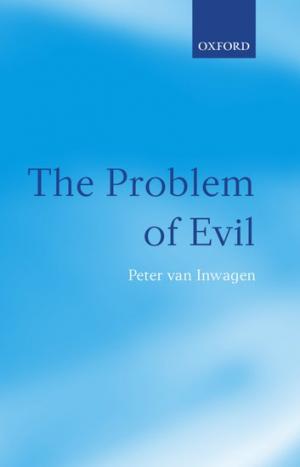Lecture 1: The Problem of Evil and the Argument from Evil
Professor van Inwagen defends his decision to approach the problem of evil by way of an examination of the argument from evil. He distinguishes several different problems of evil and several different arguments from evil. He examines the contention that there is an overarching problem of evil, a problem that confronts both theists and atheists, and concludes that this contention is simply false.
Lecture 2: The Idea of God
Van Inwagen presents a list of the ‘divine attributes’. He tries to answer the question: To what extent is it possible to revise the traditional list of divine attributes without simply replacing the concept of God with another concept?
Lecture 3: Philosophical Failures
The thesis of these lectures is that the argument from evil is a failure. But what is it for a philosophical argument to fail? He proposes that a philosophical argument fails if it cannot pass a certain test. The test is an idealization of a debate in the ‘Oxford Union’ sense of debate. That is, the argument is presented by an ideal proponent of the argument to an ideal audience that is, initially, truly neutral about its conclusion; the proponent lays out the argument in the presence of an ideal critic whose brief it is to point out any weaknesses it may have to the audience of ‘ideal agnostics’. If—given world enough and time—the proponent of the argument is unable to convince the audience that they should accept the conclusion of the argument, the argument is a failure.
Lecture 4: The Global Argument from Evil
The global argument from evil proceeds from a premise about the totality of the evil that actually exists. Having examined and refuted the popular contention that there is something morally objectionable about treating the argument from evil as ‘just one more philosophical argument’, van Inwagen examines the argument presented to an audience of ideal agnostics, and the beginnings of an exchange between Atheist, an idealized proponent of the argument, and Theist, an idealized critic of the argument. The idea of a ‘defence’ is introduced: that is, the idea of a story that contains both God and all the evils that actually exist, a story that is put forward not as true but as ‘true for all anyone knows’. He represents Theist as employing a version of the ‘free-will defence’, a story according to which the evils of the world result from the abuse of free will by created beings.
Lecture 5: The Global Argument Continued
He examines three philosophical theses about free will, each of which would, if it were true, refute or raise difficulties for Theist’s attempt to reply to the argument from evil by employing the free-will defence: 1) that free will is compatible with determinism; 2) that an omniscient being would know what anyone would freely do in any counterfactual circumstances; 3) that free will is incompatible with divine foreknowledge. Having shown how Theist can show that these theses are doubtful (Theist’s use of the free-will defence does not require him to refute the theses), he passes on to a consideration of one of the sharpest arrows in Atheist’s quiver, ‘natural evil’—that is, suffering due to natural events that are not caused by acts of human will, free or unfree. He represents Theist as employing a version of the free-will defence that supposes a primordial separation of our remote ancestors from God, and as defending the conclusion that, according to this story, the suffering of human beings is caused by the abuse of free will. He invites the audience to consider carefully the question whether ‘ideal agnostics’ would indeed react to this story by saying, ‘That story is true for all we know.’
Lecture 6: The Local Argument from Evil
Local arguments from evil proceed not from a premise about ‘all the evils of the world’, but from a premise about a single horrible event. They take the form, ‘If there were a God, that would not have happened.’ He defends the conclusion that even if Theist’s arguments in the two previous lectures are indisputably correct, they do not refute the local argument, which is really an argument of a quite different kind. If Theist’s response to the global argument is correct, it provides materials from which a reply to the local argument can be constructed. This reply, oddly enough, turns on considerations of vagueness.
Lecture 7: The Sufferings of Beasts
Since there were non-rational but sentient organisms long before there were human beings, the free will defence cannot account for the sufferings of those organisms. (At one time, it might have been possible to say that the sufferings of beasts were due entirely to corruption of nature that was consequent on our first ancestors’ separating themselves from God. It is obviously no longer possible.) He presents a defence that purports to account for the sufferings of pre-human beasts and all the more recent sufferings of beasts that cannot be ascribed to the abuse of free will by human beings.
Lecture 8: The Hiddenness of God
The problem of evil can sometimes seem to be a special case of a more general problem, the seeming absence of God from the world, the conviction that, if there is a God at all, he is ‘hidden’. In this lecture, he raises the question: What does it mean, what could it mean, to say that God is hidden? The answer to this question, according to the lecturer, turns on an understanding of the divine attribute of omnipresence. When this attribute is properly understood, the conviction that God is in any sense hidden can be seen to make no sense. He considers this question: Why does God not make his reality manifest to us by causing obviously miraculous events that are plainly visible to everyone?



